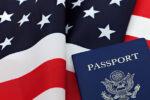A recent recall has been issued for dog food sold in New York after concerns over potential salmonella contamination. This recall, which affects several brands, is part of an ongoing effort to ensure pet safety and prevent the spread of harmful bacteria. Salmonella can pose a significant health risk, not only to pets but also to humans, particularly through cross-contamination.
The Details of the Dog Food Recall
The recalled dog food products, sold at various pet stores and online retailers throughout New York, were found to potentially contain traces of salmonella. The recall affects both dry and wet food products, and consumers who have purchased these items are urged to check the packaging for any relevant recall information. Some of the affected brands include popular names in the pet food industry, though specific details of the brands involved are still being finalized.
Salmonella is a dangerous bacterium that can cause gastrointestinal issues in pets, including vomiting, diarrhea, and fever. For humans, particularly those with weakened immune systems, handling contaminated pet food can lead to infection, with symptoms such as stomach cramps, diarrhea, and fever.
How Salmonella Contamination Happens in Dog Food
Salmonella contamination in dog food can occur during the manufacturing process, typically when proper hygiene and food safety standards aren’t strictly followed. This contamination can happen in both raw and cooked pet food products, though the risk is higher with raw pet food due to the nature of its preparation.
The bacteria can spread not just in the pet food itself, but also in the environment, especially if the contaminated food comes into contact with food preparation surfaces, bowls, or hands. Pet owners who feed their dogs recalled products are strongly advised to dispose of them immediately and sanitize any areas or items that may have come into contact with the food.
Health Risks for Pets and Humans
Salmonella infection can affect pets in various ways. Common symptoms in dogs include loss of appetite, lethargy, diarrhea, vomiting, and fever. In severe cases, the infection can lead to more serious health problems like dehydration or septicemia, which can be fatal if left untreated.
Pet owners should monitor their dogs closely and consult a veterinarian if they notice any symptoms of salmonella infection, especially if their dog has eaten any of the recalled food.
In humans, salmonella infections can be particularly concerning for young children, elderly individuals, and those with weakened immune systems. Proper handwashing after handling pet food is essential in minimizing the risk of transmission.
What Should Pet Owners Do?
If you’ve purchased any of the recalled dog food products, stop using them immediately. You can find a full list of affected products on the manufacturer’s website or the FDA’s recall page. Consumers are urged to return the products to the store where they were purchased for a full refund or dispose of them safely to avoid accidental ingestion by pets or humans.
Additionally, pet owners should clean any bowls, utensils, or surfaces that may have come into contact with the recalled food, using hot water and soap to kill any remaining bacteria. It’s also a good idea to wash your hands thoroughly after handling the recalled products.
Preventing Future Contamination
To avoid the risk of salmonella in the future, pet owners should always handle pet food with care. When purchasing pet food, consider checking the expiration date and making sure the food has been stored properly. For raw pet food, ensure that it’s handled and stored in accordance with safety guidelines.
In addition, pet owners should consider consulting their veterinarian for recommendations on safe, high-quality pet food options that minimize the risk of contamination.
Conclusion
Salmonella contamination is a serious health risk for both pets and humans, and the recent recall of dog food products in New York highlights the importance of staying informed about product recalls. If you believe you have purchased any of the affected dog food, take immediate action to dispose of it and clean any potentially contaminated areas. By staying vigilant and taking precautions, pet owners can protect their furry friends from illness and ensure their homes remain safe.
For more information on the recall and a list of affected products, visit the FDA website.
Disclaimer – Our team has carefully fact-checked this article to make sure it’s accurate and free from any misinformation. We’re dedicated to keeping our content honest and reliable for our readers.








